Addiction is a widespread issue impacting countless people worldwide, and it’s crucial to catch the warning signs early for effective intervention and support. Whether it’s substance abuse, gambling, or behaviors like excessive gaming or shopping, addiction can take many forms. Awareness of these signs can make all the difference in helping your loved ones get the assistance they need to seek help and work through this challenging disease.
One of the initial red flags of addiction is a noticeable shift in behavior. Those with addiction tend to become more secretive, withdrawing from their usual activities and responsibilities. Mood swings may become more common, and they might get defensive or agitated when questioned about their actions. While these changes can start subtly, spotting a consistent pattern could point toward a deeper addiction problem. Stay vigilant, supportive, and aware that it could make all the difference.
The Importance of Early Detection
Early detection is crucial when it comes to addiction. Recognizing the signs of addiction in its initial stages can prevent it from progressing further and causing severe damage to an individual’s physical, mental, and emotional well-being. By identifying addiction early on, you can intervene and offer support to your loved one, increasing their chances of successful recovery. Intervention is still beneficial in later-stage detection, but the earlier help is sought, the smoother and more successful treatment can be.
In addition to one’s physical and mental health, early detection of addiction can help prevent the negative consequences that often accompany this condition. It can save individuals from financial troubles, strained relationships, and legal issues, all of which are quite common with addiction. Addressing addiction in its early stages can help your loved one avoid these destructive consequences, minimize damage, and guide them toward a healthier and happier life.
Physical Signs of Addiction to Look Out For
In addition to behavioral changes, there are physical signs that can indicate a loved one’s struggle with addiction. These physical indicators can vary depending on the substance or behavior involved. For example, if someone is abusing drugs, you may notice bloodshot eyes, dilated or constricted pupils, unexplained weight loss or gain, and changes in sleep patterns. Alcohol addiction may lead to slurred speech, poor coordination, and frequent hangovers.
It’s important to note that physical signs alone may not confirm addiction, as they can also be symptoms of other health conditions. However, when combined with other indicators, they can provide valuable insights into a potential addiction problem. If you notice any of these physical signs in your loved one, it is essential to approach the subject with empathy and concern when discussing their addiction.
Behavioral Change Indicators of Addiction
Behavioral changes are often one of the most evident signs of addiction, reflecting the individual’s intense cravings and preoccupation with the addictive substance or behavior. These changes can manifest in various ways, and often loved ones perceive these changes as being “off” before they recognize it could be addiction.
Increased secrecy and lying are common behaviors among those struggling with addiction. They may become secretive about their activities, whereabouts, and the extent of their substance use, resorting to lies to cover up their addictive behavior. They may also need to live a more “private” life and get uncomfortable when asked about their whereabouts or recent outings.
Neglecting responsibilities is another hallmark of addiction. Individuals may start neglecting their obligations, such as missing work or school, neglecting personal hygiene, or ignoring financial responsibilities. Even individuals who are highly responsible and dependable can exhibit these behaviors when in an active addiction. These behavioral changes can significantly impact their functioning, relationships, and well-being.
Changes in social circles may also indicate addiction. Those with addiction may distance themselves from their usual social circles and instead gravitate towards individuals who enable or engage in similar addictive behaviors. If you observe your loved one spending time with new friends who exhibit concerning behavior, it could signal their involvement in addictive activities. Any behaviors that could indicate addiction must be approached gently, with compassion, concern, and empathy.
Emotional and Psychological Signs of Addiction
Addiction doesn’t just impact an individual’s physical and behavioral health, it can also profoundly affect their emotional and psychological well-being. Emotional and psychological signs of addiction can vary depending on the substance or behavior being abused, but several common indicators should be addressed if observed.
Mood swings can be prevalent for individuals with addiction. They may experience drastic fluctuations in mood, becoming irritable, agitated, or even aggressive when unable to access their addictive substance or engage in their addictive behaviors. Alternatively, they may also exhibit euphoria or an exaggerated sense of well-being while under the influence. These swings in mood and behavior can be an indicator of active substance abuse.
Anxiety and depression often coexist with addiction. Many individuals turn to addictive substances or behaviors as a means of coping with underlying anxiety or depression, and self-medicating. If you notice your loved one displaying symptoms of anxiety or depression, it could signal their struggle with addiction.
Loss of interest in previously enjoyed activities is another sign of addiction as well. The all-consuming nature of addiction can lead individuals to neglect activities they once found fulfilling. Hobbies, socializing, and personal goals may take a backseat to addictive behavior, resulting in feelings of isolation and disconnection from their loved ones.
Social Signs and Consequences of Addiction
Addiction carries significant social ramifications that can affect an individual’s relationships, career, and overall well-being. Recognizing these social signs and consequences is vital for identifying early indicators of addiction in a loved one.
Withdrawal from social activities is a notable behavior among those with addiction. They may distance themselves from activities they once enjoyed, isolating themselves from friends and family and preferring solitude or the company of others who enable their addictive behavior.
Relationship problems often arise due to addiction, leading to conflicts, mistrust, and emotional distance. If you observe deteriorating relationships or struggle to maintain healthy connections, it may indicate underlying addiction issues in your loved one.
Financial difficulties frequently accompany addiction, as individuals may spend excessively to sustain their addictive behavior. This can result in accumulating debt, borrowing from others, or resorting to illegal activities to fund their addiction.
Approaching your loved one with empathy and understanding is crucial when addressing potential signs of addiction. Open communication and support can increase their willingness to seek help and begin the journey towards recovery.
Approaching a Loved One About Their Potential Addiction
Approaching a loved one about their potential addiction can be a delicate and challenging task. It is crucial to approach the conversation with empathy, compassion, and a genuine desire to help. It’s common for individuals with addiction issues to feel defensive when the topic is raised to them. Here are some tips to consider when discussing addiction with your loved one:
Choose the right time and place: Find a comfortable and private setting to have an uninterrupted conversation. Avoid confronting them during moments of heightened stress or when they may be under the influence. In addition, avoid public discussions so they feel more open to the conversation.
Use “I” statements: Frame your concerns using “I” statements to express your feelings and observations without sounding accusatory. For example, say, “I have noticed changes in your behavior that worry me” instead of “You’re acting strange.”
Offer support and resources: Let your loved one know that you are there to support them and provide resources for professional help. Offer to accompany them to appointments or research treatment options together.
Remember, the goal is to encourage your loved one to seek help and not to force them into recovery. Be patient, understanding, and ready to listen to their concerns and reservations.
Seeking professional help and support for addiction
When dealing with addiction, seeking professional help and support is essential for successful recovery. Addiction is a complex condition that often requires specialized treatment and guidance. The following are some resources and options to consider:
Addiction counselors or therapists: These professionals specialize in helping individuals overcome addiction. They can provide therapy, support, and strategies for managing cravings and triggers.
Support groups: Joining support groups like Alcoholics Anonymous (AA) or Narcotics Anonymous (NA) can provide a sense of community, understanding, and shared experiences. These groups offer a safe space for individuals to connect with others who are also on the path to recovery.
Rehabilitation centers: In cases of severe addiction, residential rehabilitation centers provide a structured and supportive environment for individuals to detoxify and learn essential coping skills for long-term recovery.
Remember, every individual’s journey to recovery is unique, and what works for one person may not work for another. Encourage your loved one to explore different options and find the approach that best suits their needs. Letting them know you’re by their side through the journey can lessen the fear and help them be open to seeking help.
Preventive Measures and Interventions for Addiction
Prevention and early intervention play a crucial role in addressing addiction. Here are some preventive measures and interventions that can help minimize the risk of addiction:
Education and awareness: Promote education and awareness about the dangers of addiction from an early age. Teach children and young adults about the risks associated with substance abuse and addictive behaviors.
Encourage healthy coping mechanisms: Help individuals develop healthy coping mechanisms to deal with stress, anxiety, and other triggers that may lead to addictive behaviors. Encourage activities like exercise, mindfulness, and creative outlets. Having a stable and grounded mental state can steer individuals away from unhealthy coping, such as substance use.
Open communication: Create an environment where open communication is encouraged and the stigma surrounding addiction is reduced. This allows individuals to feel comfortable discussing their concerns and seeking help.
By implementing these preventive measures and interventions, you can create an environment that supports individuals in making healthier choices and provides the necessary resources for those struggling with addiction.
The Power of Early Intervention for Addiction
Recognizing the initial signs of addiction in a loved one is crucial for their well-being and recovery. By understanding the physical, behavioral, emotional, and social indicators of addiction, we can intervene early and provide the necessary support and resources.
Approaching a loved one about their potential addiction requires empathy, patience, and understanding. By offering support, resources, and professional help, we can guide them toward seeking the necessary treatment and embarking on their journey to recovery.
Remember, addiction is a complex condition that often requires professional intervention. Seek help from addiction counselors, therapists, and support groups to ensure the best possible outcome for your loved one. Liberty House is highly experienced in guiding individuals through the path of recovery. Together, we can make a difference and help individuals overcome the challenges of addiction.











